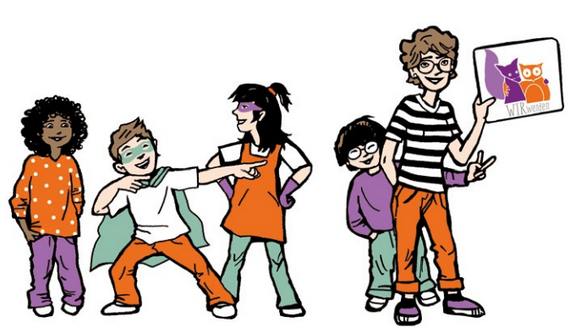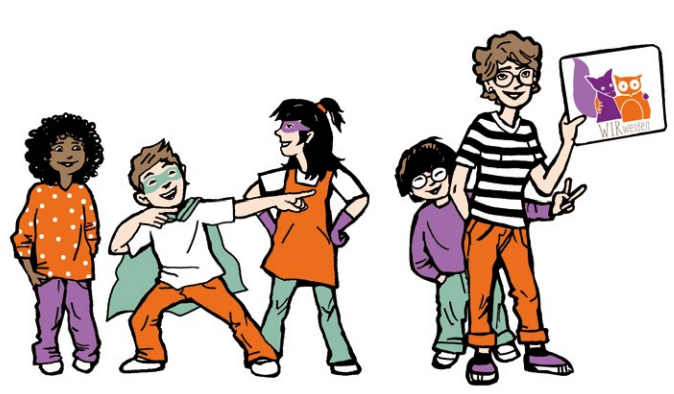 ©
Dorina Tessmann
©
Dorina Tessmann
Funded by: LSE - Leibniz School of Education; University Quality Improvement Funds for Teacher Education
Project managers: Prof. Dr. Lysann Zander, M. Ed. Jannika Haase
Student assistant: Jamila Mouhamed
Duration: 2021-2023
Description of the project:
The development of teaching students’ competencies in dealing with (cultural) heterogeneity and with the social integration of refugee and recently immigrated school children and adolescents continue to gain importance. Further, due to the increasing importance of digital teaching at schools and universities, there is a particular need for enabling teaching students to develop and implement digital teaching and learning formats that promote the social integration of recently immigrated children and adolescents. Both teaching students and school teachers are currently searching for solutions while facing the challenge of encouraging recently immigrated children and children raised up in Germany to establish positive and supportive relationships in remote learning environments. The main goal of the project is to translate an existing project, which has been implemented in schools with proven positive results, into a digital format with teaching students, teachers and experts in digital teaching and learning (film, media, design, graphics) (for the already existing project PAI - Peer-Assisted Social and Identificatory Integration of Refugee Students). Teaching students at the Leibniz University Hannover actively and constructively participate in developing digital teaching formats while they engage in cooperative work with already practicing teachers by creating ideas together and implementing these ideas at schools. In addition, the goal of the project is to establish, intensify, and consolidate (existing) cooperation structures between teaching students, instructors at the Leibniz University Hannover, teachers, and experts in digital teaching and learning. On a structural level, this can facilitate students’ transition from universities to the teaching profession and interlink the three phases of studying teaching programs (studying, traineeship/entry into the profession, further training). The project aims to promote competencies in dealing with inclusion and heterogeneity and (digital) media competence among prospective teachers and thus facilitates teachers’ dealing with challenging situations in digital learning environments after graduation. For the long-term implementation of the digital intervention sessions, a video and material platform will be created for future seminars.

